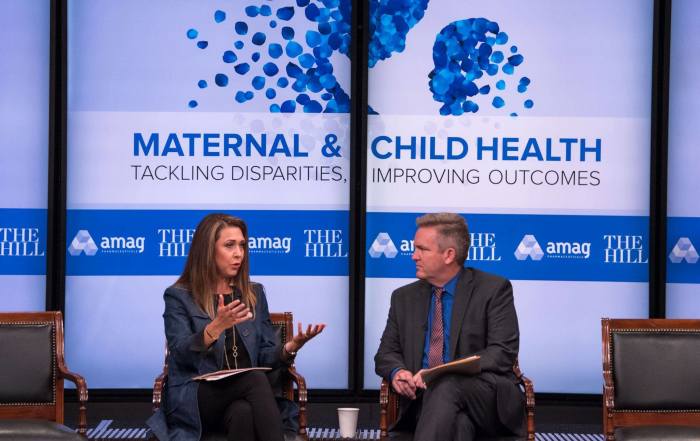Judge Hatchett’s son praises God, Congress for maternal health bill, 2 years after wife’s death

Two years after tragically losing his wife Kira shortly after she gave birth to their second child, Charles Johnson IV, son of TV judge Glenda Hatchett, praised God on Tuesday when Congress unanimously approved a bill to investigate America’s growing maternal mortality rate.
The bill, H.R. 1318 also known as the Preventing Maternal Deaths Act, is expected to help states improve how they track and investigate deaths of expectant and new mothers.
Johnson, who along with his celebrity mother has powerfully advocated for the bill through his wife’s unfortunate experience with treatment at the Cedars-Sinai Medical Center in Los Angeles, where she died after a scheduled C-section despite going in with no prior medical issues.
“Congress, H.R.1318 The preventing maternal deaths act passed Congress. Thank you God. Thank you Kira. Thank you @herrerabeutler & @repdianadegette for your courageous leadership. Thank you to everyone for all your love and support,” Johnson wrote on Facebook Tuesday after the bill was approved.
“This is a huge day for families all over the country. I’m so grateful for all your support. This is just a testament to what it looks like when people come together and apply pressure. I just thank all you all who were just so relentless in your support in continuing to ask, reach out to Congress and to hold them accountable and make sure this was a priority, make sure this bill got passed, make sure they didn’t send us over to the next Congress,” he added in a video message.
Advocacy from Johnson and his mother on the issue helped to make Kira’s story go viral on social media which may have helped to move Congress towards the landmark decision on maternal mortality.
Rep. Jaime Herrera Beutler, R-Wash., one of the original sponsors of H.R. 1318, dedicated the bill to the “mothers who we have lost” such as Johnson’s wife “who lost her life just hours after giving birth to a healthy baby boy.”

“I will never forget hearing from Kira’s husband Charles who has been a tireless advocate on this issue. Who is a single father of two boys, now lives by the motto ‘wake up, make mommy proud. Repeat.’ Stories like Kira’s have struck at the hearts of many of us and have compelled us to action today. Today we honor the lives of these moms and the loved ones who remember them,” Beutler said.
“I stand in strong support of the Preventing Maternal Deaths Act – a bill to save mothers’ lives and prevent more parents, husbands, grandparents and children from the profound loss of their mother. Today in 21st Century United States of America,” she said in support of the bill.
Beutler explained that the U.S. is ranked 47th globally for maternal mortality, and has a record on the issue that is worse than Iran’s. She also pointed out that black women and women living in rural America are disproportionately affected by the problem.
“Many are shocked to learn that the U.S. has not only the worst maternal mortality rate in the entire developed world but that these rates are on the rise. Seriously folks, we’re worse than Iran,” she said.
“Every year between 700 and 900 maternal deaths occur in the United States and I’ve seen tears brought to the eyes of many a colleague when they learn that over 60 percent of these deaths could have been prevented, according to the CDC,” she continued.
She urged Congress to make combatting maternal mortality a national priority and called the bill “the biggest step taken by Congress to date” on the issue.
The bill will enable states to establish and strengthen maternal mortality review committees which bring together experts in public health, maternal health and infant health to investigate pregnancy related deaths and highlight best practices on how to save the lives of future mothers.
“Currently the available data is woefully inadequate which hinders our ability to understand why moms are dying and why certain women are more at risk. Right now, African-American women are three to four times more likely to die from pregnancy related causes and women living in rural areas are also facing higher risk,” she said. “This bill will not only improve data collection but it will also empower states to participate in national information sharing, increased collaboration and to develop best practices.”





























